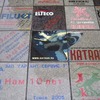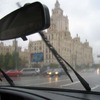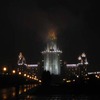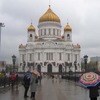G8 slams N. Korea tests, backs Russia Nuclear fuel plan
REUTERS - St Petersburg - The Group of Eight industrialised nations condemned North Koreas recent missile tests and endorsed a Russian plan to create international atomic fuel centres to prevent countries from developing nuclear bombs.
The strongest language in the groups Statement on Non-Proliferation, approved late on Sunday by the leaders of Russia, the United States, Britain, France, Germany, Italy, Canada and Japan, was directed at North Korea.
We condemn the launching ... of multiple ballistic missiles on July 5 ... and express serious concerns as this jeopardises peace, stability and security in the region and beyond, said the G8 statement, issued at a summit in St Petersburg, Russia. These missile launches intensify our deep concern over (North Koreas) nuclear weapons programmes.
The group also welcomed a UN Security Council resolution imposing arms sanctions on Pyongyang adopted over the weekend.
In somewhat softer language, the G8 also expressed serious concern about Iran, which has refused Western demands to suspend its uranium enrichment programme. Enrichment purifies uranium for use in atomic power stations or weapons.
Tehran says its nuclear programme is aimed solely at peaceful power generation, but the United States and its allies suspect it is aiming to construct a nuclear weapon.
The G8 endorsed last weeks decision by six world powers Germany, the United States, Britain, France, China and Russiato return Irans nuclear file to the Security Council.
The group declared full support for the right of all countries to a peaceful nuclear energy programme, but said states should not pursue independent enrichment and fuel reprocessing programmes.
It strongly endorsed Moscows plan to set up nuclear fuel centres in Russia under UN supervision so countries like Iran would be guaranteed access to fuel for power plants and would have no need for national enrichment programmes.
It also backed a US proposal to set up an international fuel bank, also to be overseen by the UN nuclear watchdog.
This emphasis complements, in a very positive way, the agreement to return the Iran issue to the Security Council, said Mark Fitzpatrick, a former U.S. State Department official now with the London-based International Institute for Strategic Studies.
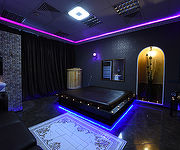 Podium
Podium
